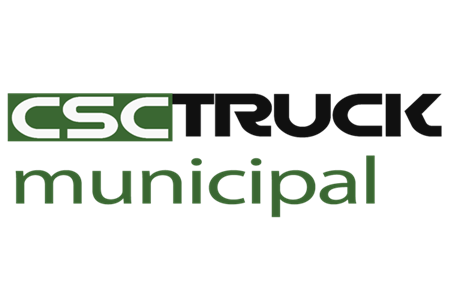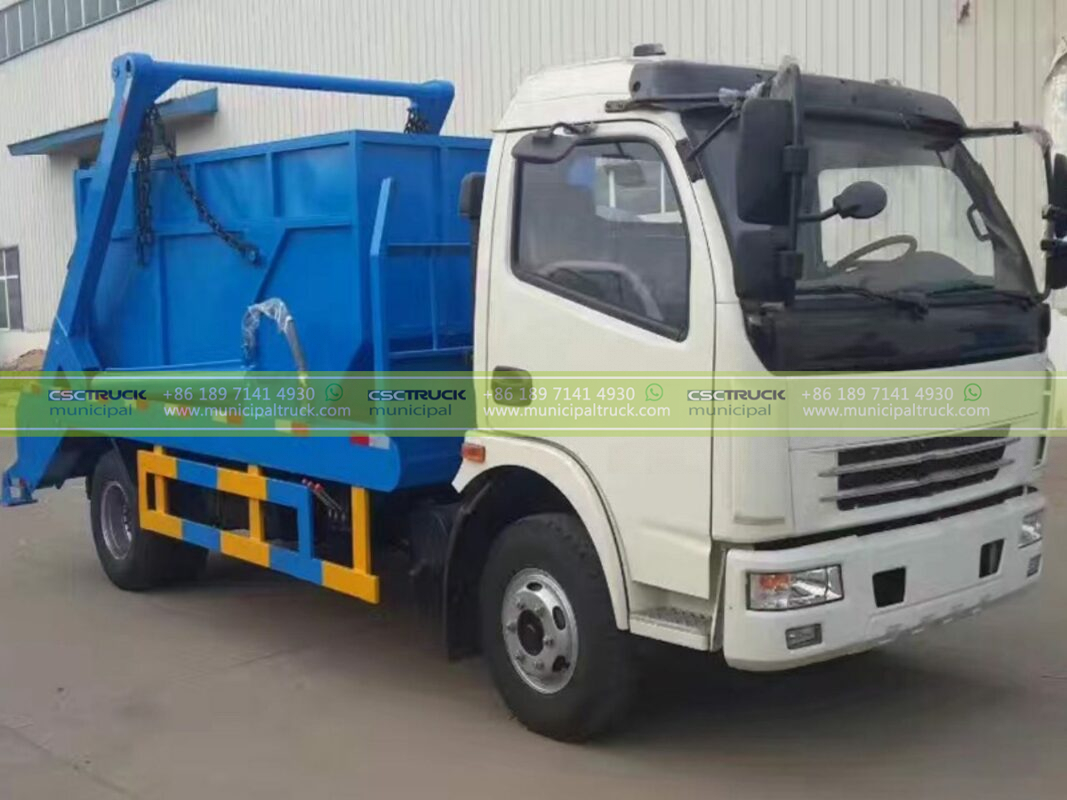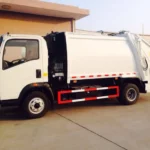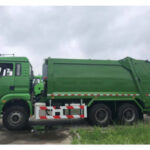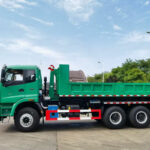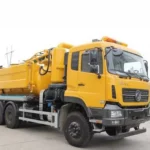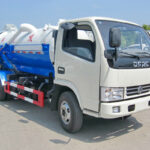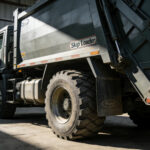In a strategic move to address Dubai’s unprecedented construction waste management challenges, CSCTRUCK Municipal has delivered 35 high-capacity skip loader garbage trucks to Dubai Municipality through a landmark partnership with Desert Waste Solutions (DWS), the Emirates’ leading integrated facilities management conglomerate. This AED 120 million initiative, operational immediately, confronts the 5.3 million tons of annual construction and demolition (C&D) debris generated across 1,200 active development sites – a volume projected to increase by 40% ahead of Expo 2030. The specialized heavy-duty skip loaders integrate robotic sorting arms, multi-stage compaction, and real-time material tracking systems, enabling municipal crews to process inert waste 70% faster than conventional methods while diverting 92% of recoverable aggregates from landfills through on-the-fly segregation technology.
Engineering Innovation: Desert-Optimized Material Handling Systems
The CSCTRUCK SLT-9500 series incorporates cutting-edge technologies engineered for Dubai’s extreme operational environment, combining brutal lifting capacity with intelligent sorting capabilities essential for high-volume construction corridors.
- Robotic Skip Sorting Module: AI-guided titanium manipulators automatically separate rebar, concrete, and timber during loading operations using spectral imaging, achieving 98% material purity for direct recycling – eliminating the $12/ton sorting costs previously incurred at transfer stations.
- Dynamic Compaction Architecture: Triple-stage hydraulic rams exert 8,500 PSI force to reduce concrete volume by 5:1 before transport, enabling single-trip payloads of 18 tons while minimizing sand infiltration that degrades landfill liners in arid climates.
- Thermal Resilience Package: Ceramic-coated cooling systems maintain hydraulic efficiency during 55°C summer operations, with particulate filters preventing silica dust ignition in compressor units – a critical safety enhancement after 2023’s waste processing facility fires.
- Telematics Integration: IoT-enabled payload sensors continuously transmit debris composition data to Dubai’s Central Waste Registry, enabling real-time landfill fee calculations and automated recycling credit issuance to contractors.
Operational Integration with Mega-Project Waste Streams
Deployment of the fleet revolutionizes construction logistics coordination across Dubai’s priority development zones, synchronizing with the Dubai Construction Waste Management Initiative 2025. The trucks serve as mobile recycling nodes at sites like Palm Jebel Ali and Mohammed Bin Rashid City, where their 270° articulating arms service 8-cubic-yard skips in confined spaces inaccessible to traditional cranes. During night operations, integrated lidar scanners create digital twins of waste accumulation patterns, allowing predictive dispatch to sites exceeding 50-ton daily debris thresholds. Crucially, the system’s Direct-to-Recycler Routing bypasses intermediate handling facilities, slashing average debris processing time from 72 hours to just 8 hours for priority materials like structural steel and aggregate.
Economic Impact Analysis: Redefining Waste Logistics Economics
Municipal economists project AED 185 million in annual savings through reduced landfill levies, transportation redundancies, and recovered material revenue. Each truck’s precision sorting capability captures 14 tons/day of high-value recyclables – enough rebar to construct three villas daily – directly feeding Dubai’s circular construction economy. The compaction technology alone reduces required trips to Al Qusais landfill by 60%, saving 28,000 liters of diesel monthly across the fleet while extending the facility’s lifespan by 11 years. Contractors using the integrated Waste Credit Platform report 25% lower compliance costs through automated documentation of recycling rates required for LEED certification on government projects.
Environmental Remediation and Climate Alignment
The fleet fundamentally advances Dubai’s Net-Zero Construction Roadmap by preventing 310,000 tons of annual CO2-equivalent emissions – comparable to removing 67,000 cars from highways. The closed-loop material recovery system intercepts 780 tons/day of concrete for crushing into roadbase aggregates, eliminating the 450km round-trip hauls previously required to Fujairah quarries. During summer operations, the trucks’ solar-assisted power systems generate 35% of auxiliary energy needs, while electrostatic precipitators capture 99.8% of PM2.5 particles during compaction – addressing a primary trigger for respiratory emergencies among workers in high-rise construction zones.
Strategic Localization and Workforce Transformation
The CSCTRUCK-DWS partnership establishes a regional competence hub at Dubai Industrial City, where 120 Emirati technicians received specialized training in mechatronic maintenance and AI sorting algorithms. This knowledge transfer includes augmented reality troubleshooting tools reducing diagnostic time by 85% for complex hydraulic failures. Performance data from the fleet now feeds Dubai’s Smart Construction Dashboard, identifying waste hotspots across development corridors and optimizing skip placement using predictive analytics. The initiative has already reduced equipment downtime during sandstorms by 78% through redesigned air intake systems developed jointly with DWS engineers.
Future Waste Technology Development Pathways
Phase Two innovations currently in field testing include:
- Autonomous Debris Corridors: AI-guided skip loader platoons operating in dedicated lanes along E311 Highway to service remote mega-projects with zero driver exposure to hazardous sites.
- Hydrogen Hybridization: Prototype trucks replacing 40% of diesel consumption with fuel cell technology, slashing particulate emissions during idling at high-rise sites.
- Blockchain Material Passporting: Immutable tracking of recycled content from skip to production facility, enabling carbon credit monetization for developers.
Integrated Waste Ecosystem Vision
These skip loaders represent the operational backbone of Dubai’s emerging circular construction landscape, with their sensor networks providing the material intelligence required for dynamic resource planning. The real-time waste analytics now guide municipal policy, including revised landfill fees for non-segregated debris and incentives for prefabrication techniques minimizing onsite waste generation. Future site planning regulations will mandate dedicated skip loading zones based on the trucks’ operational telemetry, while the recovered material database accelerates development of EmiratesGBC-approved recycled content standards for structural applications.
Strategic Expansion Framework
Dubai’s deployment establishes a replicable model for Gulf Cooperation Council markets, with DWS already negotiating fleet deployments in Riyadh and Doha using modified desert-operational specifications. The partnership’s R&D pipeline includes hybrid rear loader garbage truck prototypes for dense urban redevelopment areas where skip access remains constrained – technology that will undergo field validation at Dubai’s Al Khawaneej regeneration precinct in Q1 2026. This continuous innovation cycle ensures the Emirate maintains its leadership in sustainable hyper-urbanization while addressing the 22 million tons of annual GCC construction waste projected by 2030.
